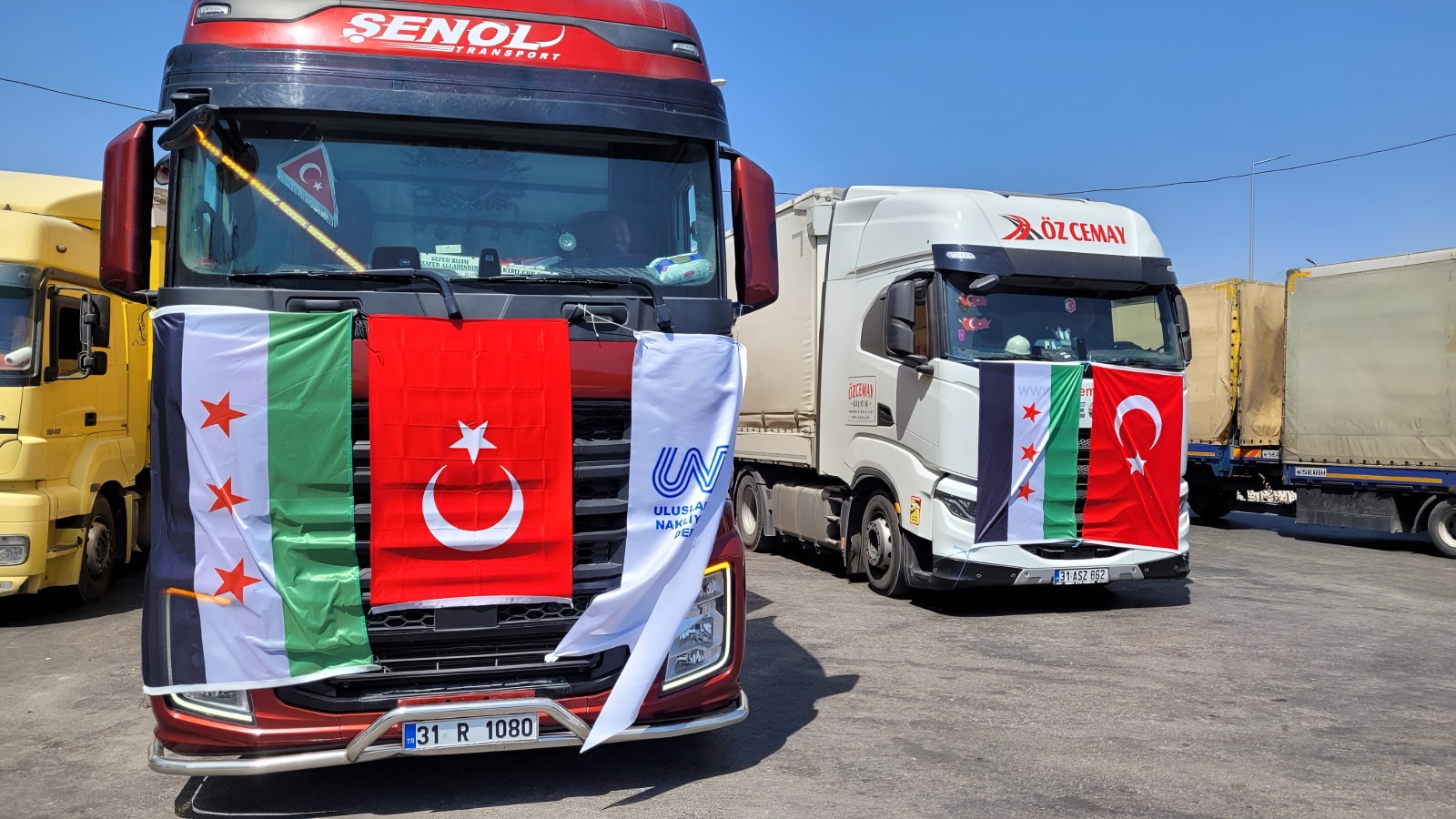Photo: Uluslararası Nakliyeciler Derneği (UND)
After 14 years, direct road transport between Turkiye and Syria has officially resumed, marking a historic milestone in bilateral trade. On August 26, trucks made their first trip to Damascus, signaling the revival of a trade route that had been largely inactive since the outbreak of the Syrian civil war in 2011.
Before the conflict, trade between Turkiye and Syria was growing rapidly. However, the war forced transport operations to rely on longer, more costly alternative routes, significantly increasing logistical expenses.
Turkiye’s Ministry of Transport and Infrastructure confirmed that international road transport without cargo transfers has returned after more than a decade. Trucks now pass through the Cilvegözü Border Gate directly, allowing goods to move efficiently between Turkiye’s cities and key destinations in Syria. This route also improves connectivity to neighboring countries, including Jordan and Saudi Arabia, making regional trade faster and more economical.
With the resumption of direct transport, vehicles no longer need to transfer goods at the border, shortening delivery times and reducing costs. Comparisons between transport volumes in the past year indicate a 50% increase in shipments to Syria, a trend expected to continue. The reopening of this corridor not only benefits exporters but also revitalizes local and regional economies.
The return of direct road transport represents a significant strategic advantage. Eliminating transfers and vehicle changes improves efficiency and reduces risks associated with damage or loss during transit. It also strengthens the region’s role in emerging international transport corridors, supporting faster, safer, and more cost-effective trade between Turkiye, Syria, and the broader Middle East.
The reopening of the Turkiye-Syria transport route marks a new chapter in regional trade, opening the door to faster, safer, and more economical logistics while enhancing economic ties across the region.

